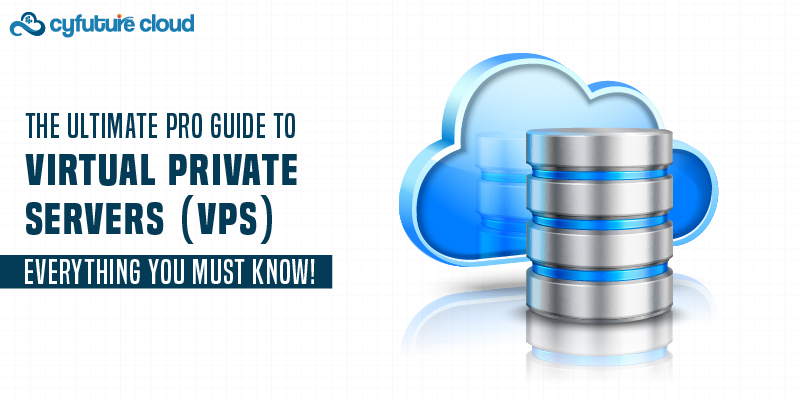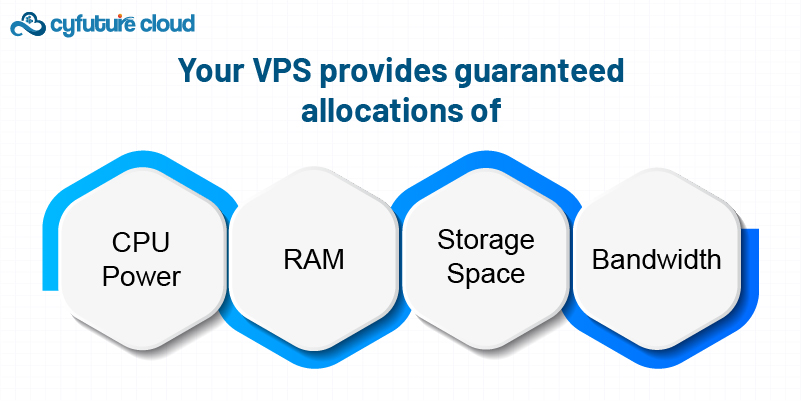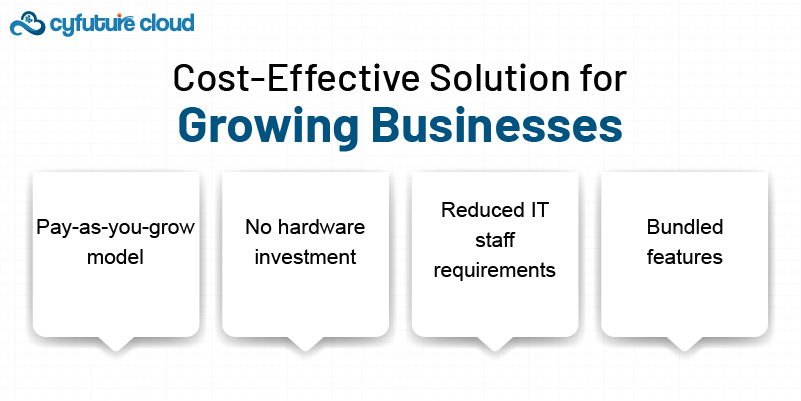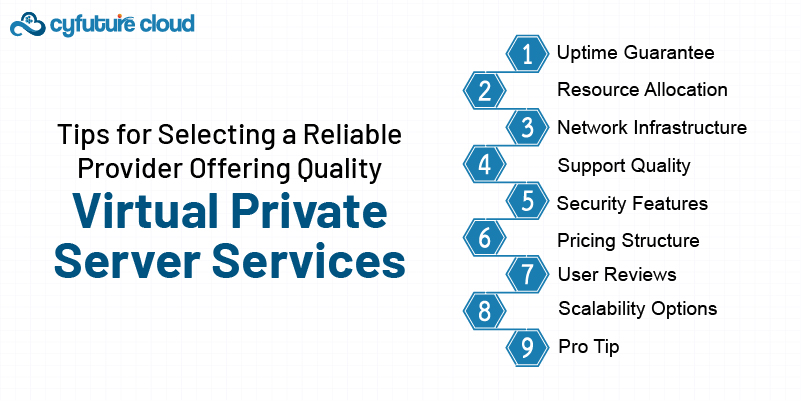
A Virtual Private Server (VPS) is a powerful hosting solution that sits between basic shared hosting and expensive dedicated servers. It can be thought of as your own private section of a larger server, with dedicated resources and complete control over your hosting environment.
Your VPS provides guaranteed allocations of:

CPU power
RAM
Storage space
Bandwidth
These resources are exclusively yours - you don't have to share or compete with other users for server power.
Whether you're running a growing e-commerce website, managing multiple web projects, or need enhanced security for your business applications, understanding VPS hosting options helps you make an informed decision for your specific needs.
Are you ready to find out if VPS hosting is the right choice for your online presence? Let's explore the technical details and practical uses of this flexible hosting solution.
VPS technology operates through a process called hypervisor virtualization. This system divides a physical server into multiple virtual environments, each functioning as an independent server with its own dedicated resources.
The hypervisor acts as a management layer that:
Controls resource allocation between virtual servers
Maintains isolation between different VPS instances
Manages hardware access for each virtual environment
Monitors performance and stability
Your VPS exists as a completely isolated environment with:
Dedicated RAM allocation
Specific CPU cores
Allocated storage space
Independent operating system
Traditional shared hosting places multiple users on a single server, sharing all resources without clear boundaries. This setup often leads to the "noisy neighbor" effect, where one user's high resource consumption affects others on the same server.
VPS hosting eliminates these issues through containerization technology. Think of it as having your own apartment in a building - you have full control over your space while sharing the main infrastructure. Each VPS container maintains strict resource boundaries, preventing other users from affecting your server's performance.
The virtualization layer enables you to:
Install custom applications
Configure server settings
Reboot your server independently
Choose your preferred operating system
This technology creates a perfect balance between dedicated server capabilities and cost-effective resource management, making it an ideal choice for businesses requiring reliable hosting solutions.
VPS hosting stands out as a powerful solution for businesses seeking reliable, high-performance web hosting. The advantages of VPS hosting extend far beyond basic web hosting capabilities, offering a robust platform that combines the best features of shared and dedicated hosting.
A key benefit of VPS hosting lies in its resource allocation system. Unlike shared hosting environments where multiple users compete for the same resources, VPS hosting provides you with dedicated resources specifically allocated to your virtual server:
CPU Power: Guaranteed processing power ensures your applications run smoothly
RAM Allocation: Dedicated memory prevents slowdowns during peak traffic periods
Disk Space: Specific storage space assigned exclusively to your virtual server
Bandwidth: Predetermined network resources for consistent connection speeds
These dedicated resources translate into tangible benefits for your website or application:
Faster page loading times
Reduced server response times
Stable performance during traffic spikes
Reliable application execution
The isolation technology used in VPS hosting creates a secure environment where neighboring accounts cannot impact your server's performance. This isolation ensures that resource-heavy websites on the same physical server won't affect your site's speed or reliability.
Consider this real-world scenario: An e-commerce site experiencing a surge in traffic during a sale event. With shared hosting, this surge might lead to slower page loads or even downtime. A VPS, with its guaranteed resources, maintains consistent performance regardless of other users' activities on the same physical server.
VPS hosting offers the flexibility to scale your resources up or down based on your business requirements. As your website or application grows, you can easily upgrade your VPS plan to accommodate increased traffic or resource demands without any disruptions.
This scalability feature is particularly beneficial for:
E-commerce platforms requiring consistent performance during peak seasons
Content management systems handling multiple users and large media files
Development environments needing specific configurations for testing purposes
Business applications demanding reliable uptime and responsiveness
By choosing VPS hosting, you have the ability to adapt and grow alongside your business, ensuring that your online presence remains strong and competitive.
While dedicated hosting offers similar benefits to VPS hosting in terms of performance and resources, it often comes at a higher price point. VPS hosting provides many of the advantages of dedicated hosting but at a more affordable cost.
This cost-effectiveness makes VPS hosting an attractive option for startups and small businesses looking to establish their online presence without breaking the bank.
The resource guarantees of VPS hosting make it particularly valuable for:
E-commerce platforms requiring consistent performance
Content management systems handling multiple users
Development environments needing specific configurations
Business applications demanding reliable uptime
Websites experiencing steady growth in traffic
These guaranteed resources form the foundation for superior hosting performance, setting the stage for enhanced business operations and improved user experiences.
VPS hosting strikes the perfect balance between performance and affordability for growing businesses. You get dedicated resources at a fraction of the cost of traditional dedicated servers, with prices typically ranging from $20 to $100 per month based on your resource needs.
Here's what makes VPS hosting budget-friendly:

Pay-as-you-grow model: Start with basic resources and scale up only when needed
No hardware investment: Eliminate upfront costs for physical server equipment
Reduced IT staff requirements: Save on technical personnel, especially with managed VPS options
Bundled features: Get essential services like backup solutions and security tools included
The cost advantages become apparent when comparing hosting options:
Shared Hosting: $5-15/month VPS Hosting: $20-100/month Dedicated Server: $100-500+/month
Small businesses can access enterprise-level features without breaking the bank:
Root access for complete server control
Custom software installation capabilities
Professional email hosting
Advanced security features
Regular backup systems
You'll find VPS hosting particularly cost-effective when your website outgrows shared hosting but doesn't require the full power of a dedicated server. The ability to adjust resources based on actual usage ensures you never overpay for unused capacity or face performance issues during peak times.
Digital businesses often experience unpredictable growth patterns - your website might have sudden spikes in traffic or gradually expand over time. VPS hosting is designed to handle these changing demands effortlessly through its flexible resource allocation system.
The scalability features of VPS hosting include:
Instant Resource Upgrades: Add CPU cores, RAM, or storage space within minutes
No Website Downtime: Resource adjustments happen without service interruption
Vertical Scaling: Increase power within your existing server setup
Horizontal Scaling: Add multiple VPS instances for distributed workloads
You can scale your VPS resources based on:
1.Traffic patterns
2.Application requirements
3.Database growth
4.Storage needs
5.Processing demands
Here's a practical example: An e-commerce site running on VPS can quickly upgrade from 2GB to 4GB RAM during holiday sales seasons, then scale back down afterward. This flexibility eliminates the need for migration to new hosting plans or physical server upgrades.
VPS providers typically offer a control panel where you can monitor resource usage and make adjustments. Some hosts even provide auto-scaling features that automatically adjust resources based on real-time demands, ensuring optimal performance during peak periods while maintaining cost efficiency during quieter times.
This scalability makes VPS hosting particularly valuable for:
Startups expecting rapid growth
Seasonal businesses with fluctuating traffic
Development teams requiring different server configurations
E-commerce sites with varying resource needs
VPS hosting puts you in complete control of your server environment. You can customize every aspect of your hosting setup to match your specific needs - from selecting the operating system to installing specialized software applications.
Root Access Benefits:
Install custom applications and scripts
Modify server configurations at will
Set up specific security protocols
Configure specialized development environments
Run multiple websites with different requirements
Your VPS functions as a blank canvas, allowing you to build the exact hosting environment you need. You can install specific versions of programming languages, databases, or web servers that your applications require. This level of customization proves invaluable for developers working with unique tech stacks or businesses running specialized software.
Popular Customization Options:
Web server software (Apache, Nginx, LiteSpeed)
Database management systems (MySQL, PostgreSQL, MongoDB)
Programming languages (PHP, Python, Ruby, Node.js)
Control panels (cPanel, Plesk, Webmin)
Security tools and firewalls
The flexibility extends to resource allocation - you can adjust CPU priorities, memory usage, and disk space distribution among different applications running on your VPS. This granular control helps optimize performance for your specific use case, whether you're hosting a high-traffic website, running a game server, or managing multiple development environments.
VPS hosting offers strong security features that safeguard your digital assets from potential threats. The isolated environment creates a protective barrier between your server and other users on the same physical machine, preventing unauthorized access and resource exploitation.
Key Security Features:
Dedicated Firewall Protection: Configure custom firewall rules to control incoming and outgoing traffic
SSL Certificate Integration: Secure data transmission between your server and visitors
Root Access Control: Manage user permissions and access levels
Regular Security Updates: Automated system patches and security fixes
DDoS Protection: Built-in mitigation against distributed denial-of-service attacks
Your VPS environment allows implementation of specific security protocols based on your needs. You can install additional security software, set up intrusion detection systems, and create automated backup schedules.
Advanced Security Options:
Two-factor authentication for server access
IP address blocking capabilities
Custom security rules and policies
Virtual private networks (VPN) integration
Real-time security monitoring and alerts
The isolated nature of VPS hosting means security breaches affecting other users won't impact your server. You maintain complete control over security configurations, allowing quick responses to potential threats and vulnerabilities.
These security features make VPS hosting an ideal choice for businesses handling sensitive data, e-commerce platforms, and applications requiring strict compliance standards.
VPS hosting services come in distinct varieties, each designed to meet specific business needs and technical requirements. Understanding these different types helps you make an informed decision for your hosting needs.
Managed VPS services act as your personal IT team, handling:
Server setup and configuration
Security updates and patches
Regular backups
Performance monitoring
Technical support
Software installations
Server maintenance
Unmanaged VPS services put you in complete control of your server environment:
Full root access
Complete server customization
Freedom to install any software
Direct server management
Custom security configurations
The choice between managed and unmanaged VPS depends on your:
Technical knowledge
Budget constraints
Time availability
Server management preferences
Support requirements
Small businesses and non-technical users often benefit from managed services, while developers and system administrators might prefer unmanaged options for greater control and customization capabilities.
Cloud-based VPS represents a significant evolution in hosting technology, combining the power of cloud computing with traditional VPS capabilities. These systems operate on a network of interconnected servers, creating a robust infrastructure that enhances reliability and performance.
Key Features of Cloud VPS:
High Availability: Multiple servers work together to maintain uptime, eliminating single points of failure
Instant Provisioning: New servers can be deployed within minutes
Geographic Distribution: Data centers across different locations improve content delivery speeds
Live Migration: Hardware maintenance doesn't require downtime
Dynamic Resource Allocation: Resources scale automatically based on demand
Cloud VPS systems offer superior flexibility compared to traditional physical servers. You can instantly adjust resources like CPU, RAM, and storage without hardware limitations. This elasticity proves invaluable during traffic spikes or seasonal demands.
The distributed nature of cloud VPS provides built-in redundancy. If one physical server experiences issues, your virtual server automatically migrates to another functioning node. This architecture delivers 99.99% uptime guarantees - a critical factor for business operations.
Performance Benefits:
Reduced latency through edge computing capabilities
Load balancing across multiple servers
Automatic backup and disaster recovery
Pay-as-you-go pricing model
Enhanced security through isolated network segments
Cloud VPS platforms integrate advanced monitoring tools, allowing you to track resource usage and performance metrics in real-time. These insights help optimize your hosting environment and control costs effectively.
The choice between Linux and Windows VPS can significantly impact your project's success. Each operating system brings distinct advantages to your hosting environment.
Linux VPS Benefits:
Lower cost due to open-source nature
Superior security architecture
Lighter resource consumption
Extensive command-line capabilities
Perfect for PHP, Python, and Ruby applications
Supports popular control panels like cPanel and Plesk
Windows VPS Advantages:
Familiar user interface for Windows users
Native support for .NET and ASP
Seamless integration with Microsoft products
Built-in Remote Desktop Protocol (RDP)
Ideal for Exchange Server and SharePoint
Windows-specific application compatibility
Linux distributions like Ubuntu, CentOS, and Debian dominate the VPS market due to their stability and resource efficiency. These systems run smoothly with minimal RAM and CPU usage, leaving more resources for your applications.
Windows VPS suits businesses heavily invested in Microsoft technologies. The intuitive graphical interface reduces the learning curve for system administrators familiar with Windows environments. This option particularly benefits organizations running Windows-specific software or requiring Active Directory integration.
Performance Considerations:
Linux VPS typically requires less RAM and CPU
Windows VPS needs additional resources for GUI
Linux offers better performance for web hosting
Windows excels in enterprise application hosting
Your choice should align with your technical requirements, budget constraints, and team expertise. Linux VPS provides cost-effective solutions for web applications, while Windows VPS shines in corporate environments requiring Microsoft service integration.

Selecting the right VPS provider impacts your website's performance, security, and reliability. Here's what to look for in a quality VPS hosting service:
Uptime Guarantee - Choose providers offering 99.9% or higher uptime commitments
Resource Allocation - Verify the exact CPU, RAM, and storage specifications included
Network Infrastructure - Check for multiple data centers and robust network connections
Support Quality - Test their customer service response times and technical expertise
Security Features - Look for providers with DDoS protection, regular backups, and firewall options
Pricing Structure - Compare plans across providers, watching for hidden fees
User Reviews - Research real customer experiences and performance reports
Scalability Options - Ensure easy resource upgrades as your needs grow
Pro Tip: Request a trial period to test the service quality before making a long-term commitment. Many reputable providers offer money-back guarantees or short-term testing options.
What is a Virtual Private Server (VPS)?
A Virtual Private Server (VPS) is a virtualized server that mimics a dedicated server within a larger physical server. It uses virtualization technology to provide dedicated resources such as CPU, RAM, and disk space to each user, resulting in improved performance and stability compared to traditional shared hosting options.
What are the advantages of using VPS hosting solutions?
VPS hosting offers several key advantages including enhanced performance with guaranteed resources, cost-effectiveness for growing businesses, scalability to accommodate changing needs, customizable server environments tailored to specific requirements, and improved security measures for peace of mind online.
How does VPS differ from traditional hosting options?
The primary difference between VPS and traditional hosting options lies in resource allocation. While shared hosting divides resources among multiple users, VPS provides dedicated resources for each user, leading to better performance and stability. Additionally, VPS allows for greater customization and control over server settings.
What types of VPS hosting services are available today?
There are various types of VPS hosting services available including managed vs unmanaged services, cloud-based virtual private servers, and Linux vs Windows based VPS. Each type has its own benefits and is suitable for different project requirements.
How do I choose the right VPS provider?
When selecting a reliable VPS provider, consider factors such as the quality of customer support, uptime guarantees, resource allocation options, security features, pricing plans, and user reviews. It's essential to choose a provider that aligns with your specific needs for performance and reliability.
What is the difference between managed and unmanaged VPS services?
Managed VPS services come with full technical support where the provider handles server management tasks such as updates and security. Unmanaged VPS services require users to manage their own servers but offer more control and customization options. The choice depends on your technical expertise and the level of assistance you require.

Let’s talk about the future, and make it happen!